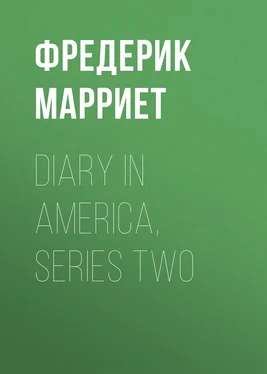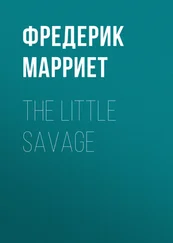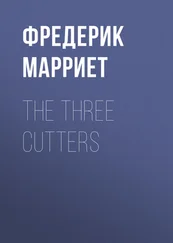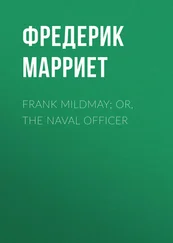Фредерик Марриет - Diary in America, Series Two
Здесь есть возможность читать онлайн «Фредерик Марриет - Diary in America, Series Two» — ознакомительный отрывок электронной книги совершенно бесплатно, а после прочтения отрывка купить полную версию. В некоторых случаях можно слушать аудио, скачать через торрент в формате fb2 и присутствует краткое содержание. Жанр: Путешествия и география, История, literature_19, foreign_edu, foreign_antique, foreign_prose, на английском языке. Описание произведения, (предисловие) а так же отзывы посетителей доступны на портале библиотеки ЛибКат.
- Название:Diary in America, Series Two
- Автор:
- Жанр:
- Год:неизвестен
- ISBN:нет данных
- Рейтинг книги:3 / 5. Голосов: 1
-
Избранное:Добавить в избранное
- Отзывы:
-
Ваша оценка:
- 60
- 1
- 2
- 3
- 4
- 5
Diary in America, Series Two: краткое содержание, описание и аннотация
Предлагаем к чтению аннотацию, описание, краткое содержание или предисловие (зависит от того, что написал сам автор книги «Diary in America, Series Two»). Если вы не нашли необходимую информацию о книге — напишите в комментариях, мы постараемся отыскать её.
Diary in America, Series Two — читать онлайн ознакомительный отрывок
Ниже представлен текст книги, разбитый по страницам. Система сохранения места последней прочитанной страницы, позволяет с удобством читать онлайн бесплатно книгу «Diary in America, Series Two», без необходимости каждый раз заново искать на чём Вы остановились. Поставьте закладку, и сможете в любой момент перейти на страницу, на которой закончили чтение.
Интервал:
Закладка:
The day after the punishment, he publishes a full and particular account of how many kicks, tweaks of the nose, or lashes he may have received. He prostitutes his pen, his talent, every thing for money. His glory is, that he has passed the rubicon of shame; and all he regrets is, that the public is at last coming to the unanimous opinion, that he is too contemptible, too degraded, to be even touched. The other, and more respectable editors of newspapers, avoid him, on account of the filth which he pours forth; like a polecat, he may be hunted down; but no dog will ever attempt to worry him, as soon as he pours out the contents of his foetid bag.
It is a convincing proof of the ardent love of defamation in this country, that this modern Thersites, who throws the former of that name so immeasurably into the background, has still great sway over men in office; every one almost, who has a character, is afraid of him, and will purchase his silence, if they cannot his good will.
During the crash at New York, when even the suspicion of insolvency was fatal, this miscreant published some of the most respectable persons of New York as bankrupts, and yet received no punishment. His paper is clever, that is certain; but I very much doubt if Bennett is the clever man—and my reason is this, Bennett was for some time in England, and during that time the paper, so far from falling off, was better written than before. I myself, before I had been six weeks in the country, was attacked by this wretch, and, at the same time, the paper was sent to me with this small note on the margin:– “Send twenty dollars, and it shall be stopped.”—“I only wish you may get it,” said I to myself. 10 10 Some of the invented calumnies against me found their way to this country. I consider the contents of this chapter to be a sufficient refutation, not only of what has been, but of what will in all probability be hereafter asserted against me by the American press.
Captain Hamilton, speaking of the newspaper press in America, says—
“In order to form a fair estimate of their merit, I read newspapers from all parts of the union, and found them utterly contemptible, in point of talent, and dealing in abuse so virulent, as to excite a feeling of disgust,—not only with the writers, but with the public which afforded them support. Tried by this standard—and I know not how it can be objected to—the moral feeling of this people must be estimated lower than in any deductions from other circumstances I have ventured to rate it.”
In the following remarks, also, I most cordially agree with him. “Our newspaper and periodical press is bad enough. Its sins against propriety cannot be justified, and ought not to be defended. But its violence is meekness, its liberty restraint, and even its atrocities are virtues, when compared with that system of brutal and ferocious outrage which distinguishes the press in America. In England, even an insinuation against personal honour is intolerable. A hint—a breath—the contemplation even of a possibility of tarnish—such things are sufficient to poison the tranquillity, and, unless met by prompt vindication, to ruin the character of a public man; but in America, it is thought necessary to have recourse to other weapons. The strongest epithets of a ruffian vocabulary are put in requisition.”
It may be asked, how is it possible that an “enlightened nation” can permit such atrocity. It must be remembered, that newspapers are vended at a very low price throughout the States, and that the support of the major portion of them is derived from the ignorant and lower classes. Every man in America reads his newspaper, and hardly any thing else; and while he considers that he is assisting to govern the nation, he is in fact, the dupe of those who pull the strings in secret, and by flattering his vanity, and exciting his worst feelings, make him a poor tool in their hands. People are too apt to imagine that the newspapers echo their own feelings; when the fact is, that by taking in a paper, which upholds certain opinions, the readers are, by daily repetition, become so impressed with these opinions, that they have become slaves to them. I have before observed, that learning to read and write is not education, and but too often is the occasion of the demoralisation of those, who might have been more virtuous and more happy in their ignorance. The other day when I was in a steam-vessel, going down to Gravesend, I observed a foot-boy sitting on one of the benches—he was probably ten or eleven years old, and was deeply engaged in reading a cheap periodical, mostly confined to the lower orders of this country called the Penny Paul Pry. Surely it had been a blessing to the lad, if he had never learnt to read or write, if he confined his studies, as probably too many do, from want of farther leisure, to such an immoral and disgusting publication.
In a country where every man is a politician, and flatters himself that he is assisting to govern the country, political animosities must of course be carried to the greatest lengths, and the press is the vehicle for party violence; but Captain Hamilton’s remarks are so forcible, and so correct, that I prefer them to any I could make myself.
“The opponents of a candidate for office, are generally not content with denouncing his principles, or deducing from the tenor of his political life, grounds for questioning the purity of his motives. They accuse him boldly of burglary or arson , or at the very least, of petty larceny. Time, place and circumstances , are all stated. The candidate for Congress or the Presidency, is broadly asserted to have picked pockets , or pocketed silver spoons, or to have been guilty of something equally mean and contemptible. Two instances of this, occur at this moment to my memory. In one newspaper, a member of Congress was denounced as having feloniously broken open a scrutoire, and having thence stolen certain bills and banknotes; another was charged with selling franks at twopence a piece, and thus coppering his pockets at the expense of the public.”
But let me add the authority of Americans. Mr Webster, in his celebrated speech on the public lands, observes in that powerful and nervous language for which he is so celebrated:– “It is one of the thousand calumnies with which the press teemed, during an excited political canvass. It was a charge, of which there was not only no proof or probability, but which was, in itself, wholly impossible to be true. No man of common information ever believed a syllable of it. Yet it was of that class of falsehoods, which by continued repetition, through all the organs of detraction and abuse, are capable of misleading those who are already far misled, and of farther fanning passion, already kindled into flame. Doubtless, it served in its day, and, in greater or less degree, the end designed by it. Having done that, it has sunk into the general mass of stale and loathed calumnies. It is the very cast-off slough of a polluted and shameless press.” And Mr Cooper observes—“Every honest man appears to admit that the press in America is fast getting to be intolerable . In escaping from the tyranny of foreign aristocrats, we have created in our bosoms a tyranny of a character so insupportable , that a change of some sort is getting indispensable to peace.”
Indeed, the spirit of defamation, so rife in America, is so intimately connected with its principal channel, the press, that it is impossible to mention one, without the other, and I shall, therefore, at once enter into the question.
Defamation is the greatest curse in the United States, and its effects upon society I shall presently point out. It appears to be inseparable from a democratic form of government, and must continue to flourish in it, until it pleases the Supreme to change the hearts of men. When Aristides inquired of the countryman, who requested him to write down his own name on the oyster-shell, what cause of complaint he had against Aristides; the reply given was, “I have none; except, that I do not like to hear him always called the Just .” So it is with the free and enlightened citizens of America. Let any man rise above his fellows by superior talent, let him hold a consistent, honest career, and he is exalted only into a pillory, to be pelted at, and be defiled with ordure. False accusations, the basest insinuations, are industriously circulated, his public and private character are equally aspersed, truth is wholly disregarded: even those who have assisted to raise him to his pedestal, as soon as they perceive that he has risen too high above them, are equally industrious and eager to drag him down again. Defamation exists all over the world, but it is incredible to what an extent this vice is carried in America. It is a disease which pervades the land; which renders every man suspicious and cautious of his neighbour, creates eye-service and hypocrisy, fosters the bitterest and most malignant passions, and unceasingly irritates the morbid sensibility, so remarkable among all classes of the American people.
Читать дальшеИнтервал:
Закладка:
Похожие книги на «Diary in America, Series Two»
Представляем Вашему вниманию похожие книги на «Diary in America, Series Two» списком для выбора. Мы отобрали схожую по названию и смыслу литературу в надежде предоставить читателям больше вариантов отыскать новые, интересные, ещё непрочитанные произведения.
Обсуждение, отзывы о книге «Diary in America, Series Two» и просто собственные мнения читателей. Оставьте ваши комментарии, напишите, что Вы думаете о произведении, его смысле или главных героях. Укажите что конкретно понравилось, а что нет, и почему Вы так считаете.












